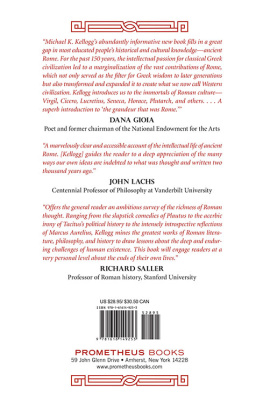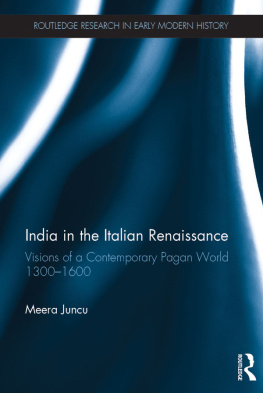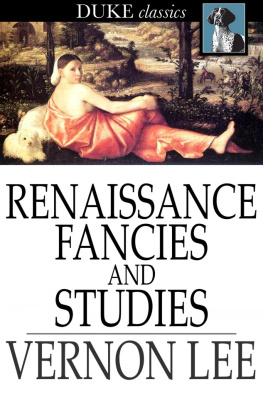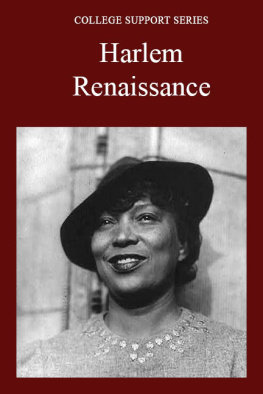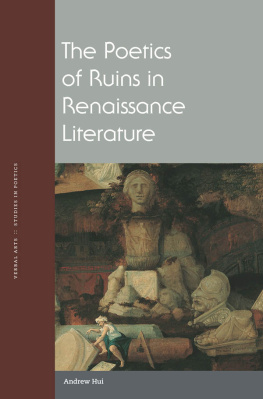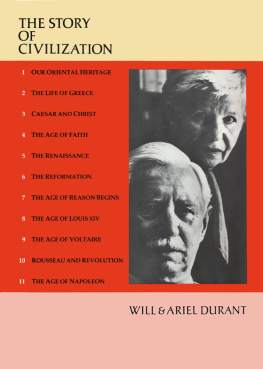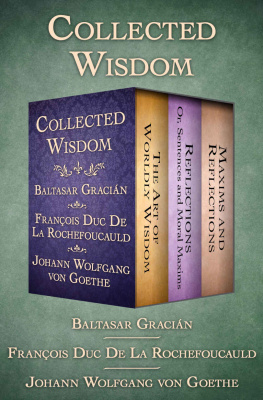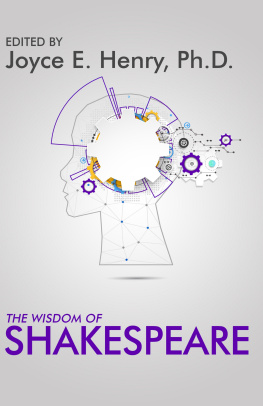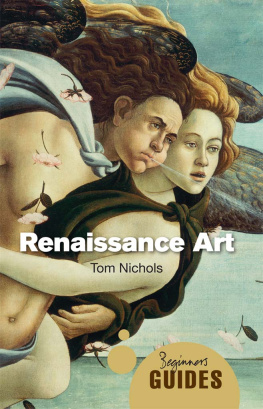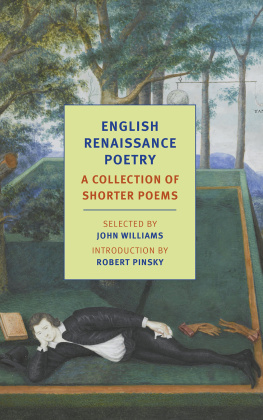Michael K. Kellogg - The Wisdom of the Renaissance
Here you can read online Michael K. Kellogg - The Wisdom of the Renaissance full text of the book (entire story) in english for free. Download pdf and epub, get meaning, cover and reviews about this ebook. year: 2019, publisher: Prometheus, genre: Non-fiction. Description of the work, (preface) as well as reviews are available. Best literature library LitArk.com created for fans of good reading and offers a wide selection of genres:
Romance novel
Science fiction
Adventure
Detective
Science
History
Home and family
Prose
Art
Politics
Computer
Non-fiction
Religion
Business
Children
Humor
Choose a favorite category and find really read worthwhile books. Enjoy immersion in the world of imagination, feel the emotions of the characters or learn something new for yourself, make an fascinating discovery.

- Book:The Wisdom of the Renaissance
- Author:
- Publisher:Prometheus
- Genre:
- Year:2019
- Rating:3 / 5
- Favourites:Add to favourites
- Your mark:
- 60
- 1
- 2
- 3
- 4
- 5
The Wisdom of the Renaissance: summary, description and annotation
We offer to read an annotation, description, summary or preface (depends on what the author of the book "The Wisdom of the Renaissance" wrote himself). If you haven't found the necessary information about the book — write in the comments, we will try to find it.
This engaging survey of important works spanning the lives of Petrarch (1304-1374) to Shakespeare (1564-1616) reveals the depth of thought and the diversity of expression that characterized the Renaissance. The author examines poetry, philosophical treatises, essays, letters, novels, comedies, and dramas, documenting the unique array of evolving concerns that drove the Renaissance search for wisdom.
The Wisdom of the Renaissance — read online for free the complete book (whole text) full work
Below is the text of the book, divided by pages. System saving the place of the last page read, allows you to conveniently read the book "The Wisdom of the Renaissance" online for free, without having to search again every time where you left off. Put a bookmark, and you can go to the page where you finished reading at any time.
Font size:
Interval:
Bookmark:
I have not attempted to document every source for the ideas in this book. But my extensive debt to generations of Renaissance scholars and translators will be obvious to those in the field. I have tried to list the books and articles on which I most relied, as well as those from which general readers would most benefit, in the section on Suggestions for Further Reading. I also cite there, and in the notes, the many excellent translations from which the quotations in the text are derived.
Oxford historian Emily Winkler read the chapters as they were written and made numerous helpful suggestions and corrections. My brother Petera distinguished playwrightread the chapter on Shakespeare and provided several key insights and comments, as did my daughter, Camille, to whom this book is dedicated.
Several of my colleagues played critical roles in putting this book in final form. Darrin Leverette scrupulously worked through the entire manuscript, checking the cites, the facts, and the prose, and saving me from numerous errors. His intelligence, attention to detail, willingness to track down obscure sources, and sensitivity to the nuances of language were all indispensable. So, too, was the work of Susan Cohen, who carefully and thoughtfully read each chapter. My longtime assistant, Marilyn Williams, without whom I would never accomplish anything, kept the entire project on schedule and put the manuscript in its final form.
Denise Roeper was my freelance editor from Prometheus Books. She has a wonderful ear for language and a sharp eye for imprecision. The book is much improved thanks to her efforts. She was also a delight to work with.
I would also like to express my gratitude and pay tribute to Steven L. Mitchell, the longtime editor in chief of Prometheus Books, who just retired after almost forty years. During that time, he helped make Prometheus Books into a model for independent publishers, offering serious books for thoughtful readers on a range of subjects. I am especially grateful that he was willing to take a chance on an unknown, previously unpublished author and that he stayed with me through five books.
My greatest joys are my wife, Lucy, and my three childrenBaird, Cole, and Camillewho have sustained, encouraged, and inspired me throughout the writing of the books in this series.
I am like a man standing between two worlds; I look both forward and backward.
T his dual vision is the essence of Petrarch. Indeed, it is the essence of the Renaissance that Petrarch did so much to bring into being. The Renaissance looked backward, beyond the Middle Ages, to the classical tradition of ancient Rome and ancient Greece. And the Renaissance looked forward, in an explosion of creativity, to new forms of thought and expression freed from medieval constraints. But Petrarch also looked within, to explore his own soul, and he was tormented by his seeming failures and inadequacies.
Petrarch has long been called the first modern man.
But the medieval synthesis was irrevocably shattered in Petrarch. Petrarchs work was as fragmented as his Canzoniere (Songbook), originally titled Rerum vulgarium fragmenta (Fragments in the Vernacular). Petrarch himself was a mass of contradictions, large and small. He was a religious seeker who found rest for his troubled soul only in the study of ancient literature. He was a devout Christian who had no patience for the scholastic thought of Abelard and Aquinas. He was a cleric with illegitimate children. He was an amazingly productive writer who rarely finished projects. He was a dedicated Latinist whose most famous writings were in Italian. He was an indefatigable traveler who praised nothing more than a quiet life in the country. He was committed to freedom yet voluntarily lived under tyrants. He sought the patronage of the great while denouncing worldly ambition. He was a hypochondriac who disparaged doctors even as he sought their advice. He was a sentimentalist who disparaged sentiment and a lover who disparaged love. He was by turn magnanimous and petty, generous to those who admired him while grudging in praise of his two greatest contemporaries, Dante and Boccaccio. He was a relentless self-publicist and a relentless self-critic, questioning everything but his own importance.
Petrarch was a fox trying to be a hedgehog. He tried to be Dante in his Canzoniere, and failed. He tried to be Augustine in his Secretum, and failed. He tried to be Virgil in his Africa, and failed. He tried to be a combination of Cicero and Seneca in his reflections on rhetoric and moral philosophy, and failed.
Where Petrarch succeeded was in being himself, in all his contradictions. He launched the discovery of the individual that is the essence of the Renaissance. He was the first true humanist. Petrarch loved scholarship, poetry, and philosophy, not just as ends in themselves but as means to a greater understanding of the self, as roads to wisdom. In his many volumes of letters, written throughout his life, he includes the reader in this process of self-discovery. He even wrote letters to the great literary figures of the ancient tradition: Homer, Livy, Virgil, Horace, Cicero, and Seneca, among others. He praised their virtues and in some cases, especially Cicero, chided their shortcomings. He used the study of literature as a means of self-examination. He thought he could discover the modern self through the rediscovery of ancient authors. Petrarch believed that the self was an object worthy of contemplation and study and that enhanced self-consciousness was our desideratum. In this, he was more a precursor to Montaigne and Rousseau than a successor to Augustine.
Indeed, we might well claim that Petrarch was the first postmodern man. For Petrarch, writing was a moral act and a personal necessity. He may not properly be numbered among the greatest thinkers and writers of all time, but he was the indispensable man of his own time. He was the pivot on which the medieval world turned toward the Renaissance.
Francesco Petrarca, known to us as Petrarch, was born on July 20, 1304, in the city-state of Arezzo, about forty-five miles from Florence. Dating back to Etruscan times, Arezzo is most famous today for its recently restored fresco by Piero della Francesca and for the Casa del Petrarca.
Although he was born in Arezzo, Petrarch always considered himself a Florentine. His father was exiled from Florence by the Black Guelfs in 1302, the same year Dante was condemned in absentia and forbidden to return. Ser Petracco moved first to Arezzo in rural Tuscany and then to the papal court at Avignon, where his wife and two sons joined him in 1312. Petrarch accordingly grew up and spent much of his life in Provence.
Petrarch was homeschooled and, from an early age, showed a great love of the Roman classics. His father, however, was of a more practical bent. He sent Petrarch at the age of twelve, along with his younger brother, Gherardo, to study law, first at Montpellier and later at Bologna. A full seven years I spent in that study, Petrarch would later write. It would be more truthful to say I wasted them! The story likely contains more symbolic than literal truth, for those two authors exercised the greatest influence on the young Petrarch. He considered them his true patrimony.
While the two boys were at Montpellier, their mother died. When their father also died a few years later, Petrarch quickly abandoned the study of law and returned to Avignon in 1326. Whatever money was in his fathers estate apparently went to a stepmother, and Petrarch and his brother were left with limited resources. Fortunately, Petrarch had a knack for attracting patronage, and he became a favorite of the powerful Colonna family from Rome, including the father, Stefano, and his sons Giovanni and Giacomo, both of whom became high-ranking church officials. Petrarch also formed close friendships with the Belgian musician Lodewyck Heyliger, whom Petrarch called Socrates, and with Lello di Pietro Stefano dei Tosetti, whom Petrarch rechristened Laelius, after the loyal friend of the Roman general and conqueror of Carthage, Scipio Africanus. Petrarchs collected letters are full of epistles to, and about, these cherished friends.
Font size:
Interval:
Bookmark:
Similar books «The Wisdom of the Renaissance»
Look at similar books to The Wisdom of the Renaissance. We have selected literature similar in name and meaning in the hope of providing readers with more options to find new, interesting, not yet read works.
Discussion, reviews of the book The Wisdom of the Renaissance and just readers' own opinions. Leave your comments, write what you think about the work, its meaning or the main characters. Specify what exactly you liked and what you didn't like, and why you think so.

